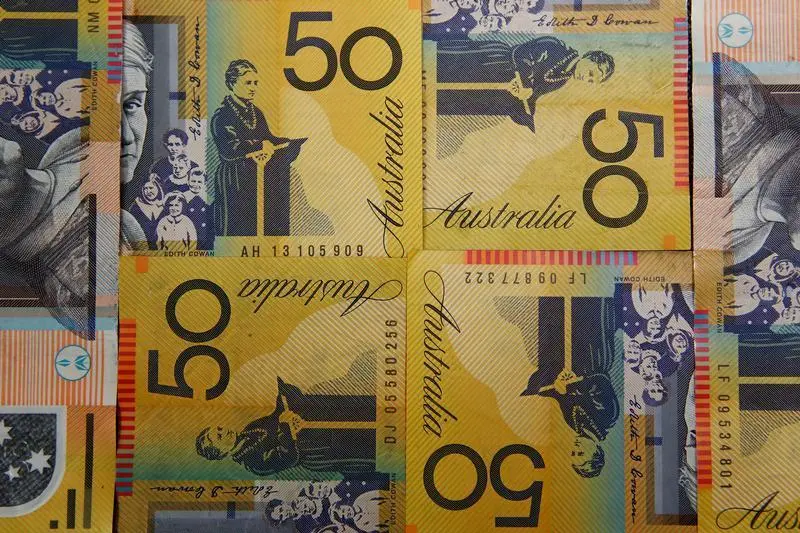PHOTO
The Australian and New Zealand dollars reversed early gains on Monday, as investor optimism faded over a rescue deal for Credit Suisse and a concerted effort by global central banks to restore confidence, while bonds rallied.
The Aussie eased 0.1% to $0.6692, after rising as much as 0.6% to $0.6743 earlier in the day, buoyed by outflows from the safe-haven Japanese yen as investors took comfort in the deal brokered by the Swiss government for UBS to buy beleaguered Credit Suisse.
It now has support at the 14-day moving average of $0.6670.
The kiwi dollar also slipped 0.2% to $0.6255, having hit a one-month high of $0.6309 earlier in the day. Support lies at the 14-day moving average of $0.6193.
Central banks, including the Fed, the European Central Bank and Bank of Japan, also pledged on Sunday to deepen support for liquidity, by increasing the frequency of seven-day dollar-swap operations from weekly to daily.
Tony Sycamore, market analyst at IG Group, said that while the UBS-Credit Suisse deal would help the European banking system, unsolved problems remained in the United States.
"Although regulators acted swiftly and forcefully to restore liquidity and confidence, cracks remained, and markets have a knack for finding cracks and testing confidence," he said.
China's central bank announced on Friday that it would cut banks' reserve requirement ratio for the first time this year to help the economic recovery, but that did not provide much of a lift for the Aussie.
Christopher Kent, assistant governor at the Reserve Bank of Australia (RBA), said on Monday the stress in the global banking system was mainly confined to a small number of poorly managed banks and was one of many considerations for domestic monetary policy.
Markets are wagering the strains in global banking mean the RBA's 10-month tightening campaign is essentially over, and have even priced in rate cuts of a total of 50 basis points by the end of this year.
The yield on three-year bonds plunged 14 basis points to 2.877%, edging closer to an eight-month low of 2.815% hit just week, while 10-year yields fell 10.5 bps to 3.301%.
(Reporting by Stella Qiu)





















